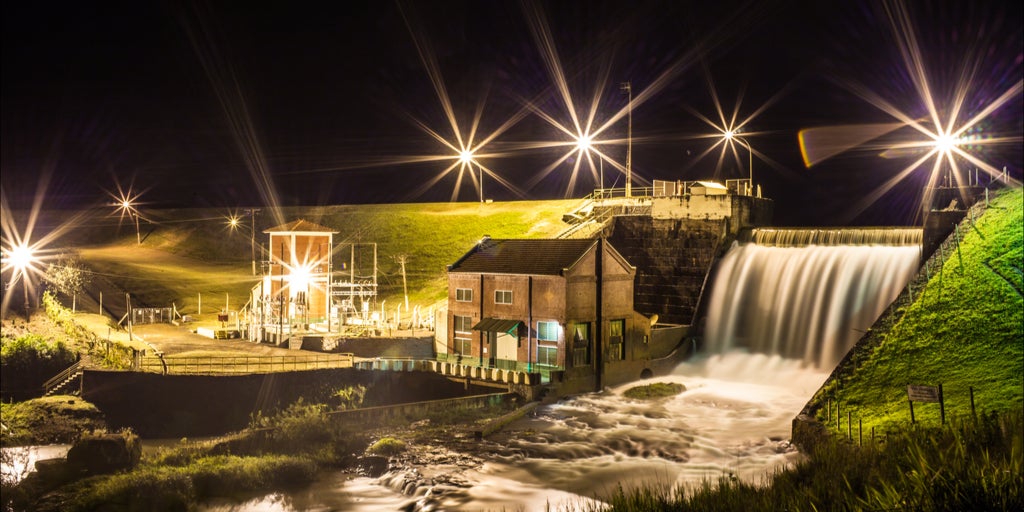Energy is key for economic development. Oil, gas, and electricity serve as an important input for transport and industry processes. Electricity is essential for household’s well-being, and commercial activities. Moreover, the quality of most public services, such as health and education, rely on electricity.
Historically, demand growth is coupled with economic development. Even with gains in energy efficiency, economic growth would require the development and maintenance of energy infrastructure to secure energy supply, both in terms of quantity and quality.
Investments in the energy sector in Brazil for the next decade (including oil, gas, and electricity) are estimated by Empresa de Pesquisas Energeticas (EPE) at almost R$ 2.000 billion. Due to its continental size, and its natural resources, Brazil has a large energy potential, both in terms of renewable energy (such as hydro, wind and solar), and in terms of fossil fuels. These sources have enabled the country to develop a clean and diversified energy matrix. Recent discoveries, such as Pre-sal, might enable the country to shift its position from net importer to exporter of energy.
Energy sector – ongoing international transformation
The global energy sector is undergoing a massive transformation, due to the growing pressure to reduce carbon emissions, and because of deep, and fast technological developments. These technological transformations are an international trend, which, in most cases, are happening independently of countries specific policies.
- New technologies are fostering the “electrification” of the economy: many sectors that traditionally relied on fossil fuels (such as transport) have now the opportunity to become electrical, creating a new demand growth for electricity.
- Electricity is becoming more distributed, due to the possibility of distributed energy services (including storage), and also the digitalization of final consumers services. These technologies enable consumers to become an active part of the market from both sides: as energy suppliers and actively modulating their demand.
How these technologies will transform the energy sector in each country will depend on the policies and the current regulatory regime adaptation.
Regulatory and policy frameworks should be coherent and facilitate change without disruption of supply or inefficient lock in technologies or incentives. New technologies should be seen as an opportunity to deal with historical challenges such as universal energy access, energy efficiency, services quality, and affordability. Being proactive and adopting technology through an adequate set of policy and regulatory frameworks to increase the system efficiency seems to be the smart choice. On the contrary, if regulations and policies are not able to adapt fast enough to this technological challenge, severe disruptions could be created, some markets segments could be penalized, and the gains that technology is offering could be lost without being materialized.
In addition to the technological disruptions, the whole sector has an urgent challenge to adapt to climate change, both in terms of reducing emissions and in terms of becoming more resilient to climate disasters. International integration of energy systems can provide a mean for a more resilient energy sector in the region.
This energy transition presents challenges and opportunities not only for the energy sector but for many other sectors of the economy that rely on energy as an input. Energy can serve as a factor of economic development and as a factor of change. So, what are the challenges for Brazil?
Some key questions that Brazilian Energy Sector would need to address to move forward
Brazil is not exempt from having to think its own energy transition. Although it starts with a privileged energy matrix –mostly renewable and with a large renewable energy potential– the country still has challenges yet to overcome. These are some of the key issues:
- How is climate change already impacting (and could impact) the resources of hydroelectric reservoirs in Brazil?
- Should hydroelectricity change their role in the system? Which is the best way to take advantage of the value of this increasingly valuable and scarce flexibility delivered by hydro reservoirs? Could Brazil become the “battery” for an integrated Latin America?
- What will be the best process and timeframe for electrification of the economy in Brazil? Given the specificities of the diverse fuel markets in Brazil (oil, natural gas, bio combustibles), what is the best strategy to think the combustible transition for both industry and transportation sectors?
- What will be the impact of technological changes on the Brazilian long-term contract market model? How to include distributed energy and storage in this process?
- Security of supply in Brazil has been guaranteed through with long-term contracts (It means that currently the risk of technological changes (such as a drastic decrease in Solar PV cost) is allocated to distributors.
- Other risks (such as hydrological risk) can be directly transferred to the consumers when they cannot leave the grid. However, new technologies (such as distributed generation) are changing this risk allocation. So, who is going to “pay” for the risks taken by the whole system?
- Poor calibration of tariffs and the transition process can create situations of lock-in or “destruction” of the industry. Is the regulation adapting fast enough?
- How new technologies should impact the market design and planning process?
- What is the role for storage (hydro pumped storage, and battery storage) in a more flexible market?
These questions might not have a clear and immediate answer. However, considering that the design process for policy and regulation requires time, and a fair deal of public consultation, these aspects will need to be addressed sooner rather than later.
The energy transition is not a single transformational process, but several processes happening at the same time, sometimes without policies or regulatory incentives. Each country will have to address its own energy transition taking into consideration its resources, potential, and needs. With a huge energy matrix, industrial sector, and a guaranteed market, Brazil is in a great position to make the best of this challenge.


Leave a Reply